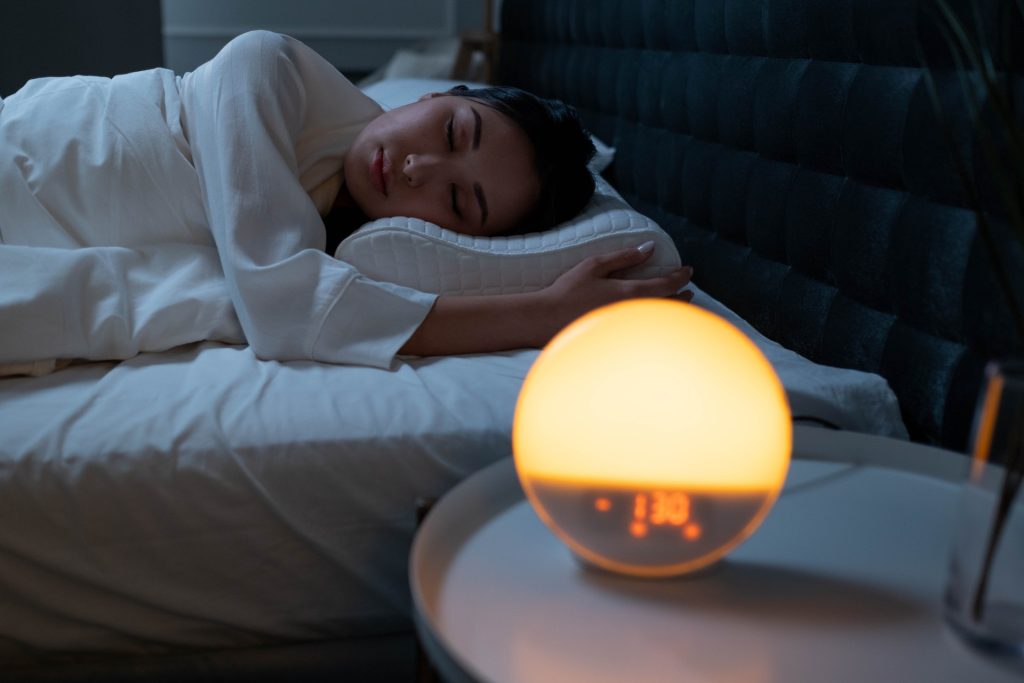
Even exposure to moderate light levels during nighttime sleep, compared to sleeping in a dimly lit room, harms cardiovascular function during sleep and increases insulin resistance the following morning, according to a new study published in PNAS.
“The results from this study demonstrate that just a single night of exposure to moderate room lighting during sleep can impair glucose and cardiovascular regulation, which are risk factors for heart disease, diabetes and metabolic syndrome,” said senior study author Dr Phyllis Zee at Northwestern University. “It’s important for people to avoid or minimise the amount of light exposure during sleep.”
There is evidence that daytime light exposure increases heart rate via sympathetic nervous system activation, increasing heart rate and alertness to meet the day’s challenges.
“Our results indicate that a similar effect is also present when exposure to light occurs during nighttime sleep,” Dr Zee said.
“We showed your heart rate increases when you sleep in a moderately lit room,” said Dr Daniela Grimaldi, a co-first author and research assistant professor of neurology at Northwestern. “Even though you are asleep, your autonomic nervous system is activated. That’s bad. Usually, your heart rate together with other cardiovascular parameters are lower at night and higher during the day.”
The sympathetic and parasympathetic nervous systems regulate the body physiology during the day and night. Sympathetic takes charge during the day and parasympathetic is supposed to at night, when it conveys restoration to the entire body.
The researchers found signs of insulin resistance the morning after people slept in a light room. An earlier study examined a large population of healthy people who had exposure to light during sleep, and found they were more overweight and obese, Dr Zee said.
“Now we are showing a mechanism that might be fundamental to explain why this happens. We show it’s affecting your ability to regulate glucose,” Dr Zee said.
The study participants were unaware of the biological shift in their bodies at night.
“But the brain senses it,” A/Prof Grimaldi said. “It acts like the brain of somebody whose sleep is light and fragmented. The sleep physiology is not resting the way it’s supposed to.”
Night-time exposure to artificial light is widespread in the modern world, either from light-emitting devices indoors, or from outdoor sources such as street lights. Up to 40% of people sleep with a bedside lamp on or with a light on in the bedroom and/or keep the television on.
“In addition to sleep, nutrition and exercise, light exposure during the daytime is an important factor for health, but during the night we show that even modest intensity of light can impair measures of heart and endocrine health,” said co-first author Dr Ivy Mason.
The study tested the effect of sleeping with 100 lux (moderate light) compared to 3 lux (dim light) in participants over a single night. Moderate light exposure caused the body to go into sympathetic activation. In blood vessels, sympathetic activation constricts arteries and arterioles which increases vascular resistance and decreases distal blood flow. When this occurs throughout the body, the increased vascular resistance causes arterial pressure to increase.
“These findings are important particularly for those living in modern societies where exposure to indoor and outdoor nighttime light is increasingly widespread,” Dr Zee said.
Zee’s top tips for reducing light during sleep
1) Keep lights off. If a light is necessary (eg for older people’s safety), keep it dim and close to the floor.
2) Colour is important: amber or red/orange light stimulates the brain. Avoid white or blue light.
3) Blackout shades or eye masks are good if outdoor light can’t be controlled. Move your bed so the outdoor light isn’t shining on your face
As a rule of thumb, Dr Zee said that being able to see things really well means it’s too light.
Source: Northwestern University

